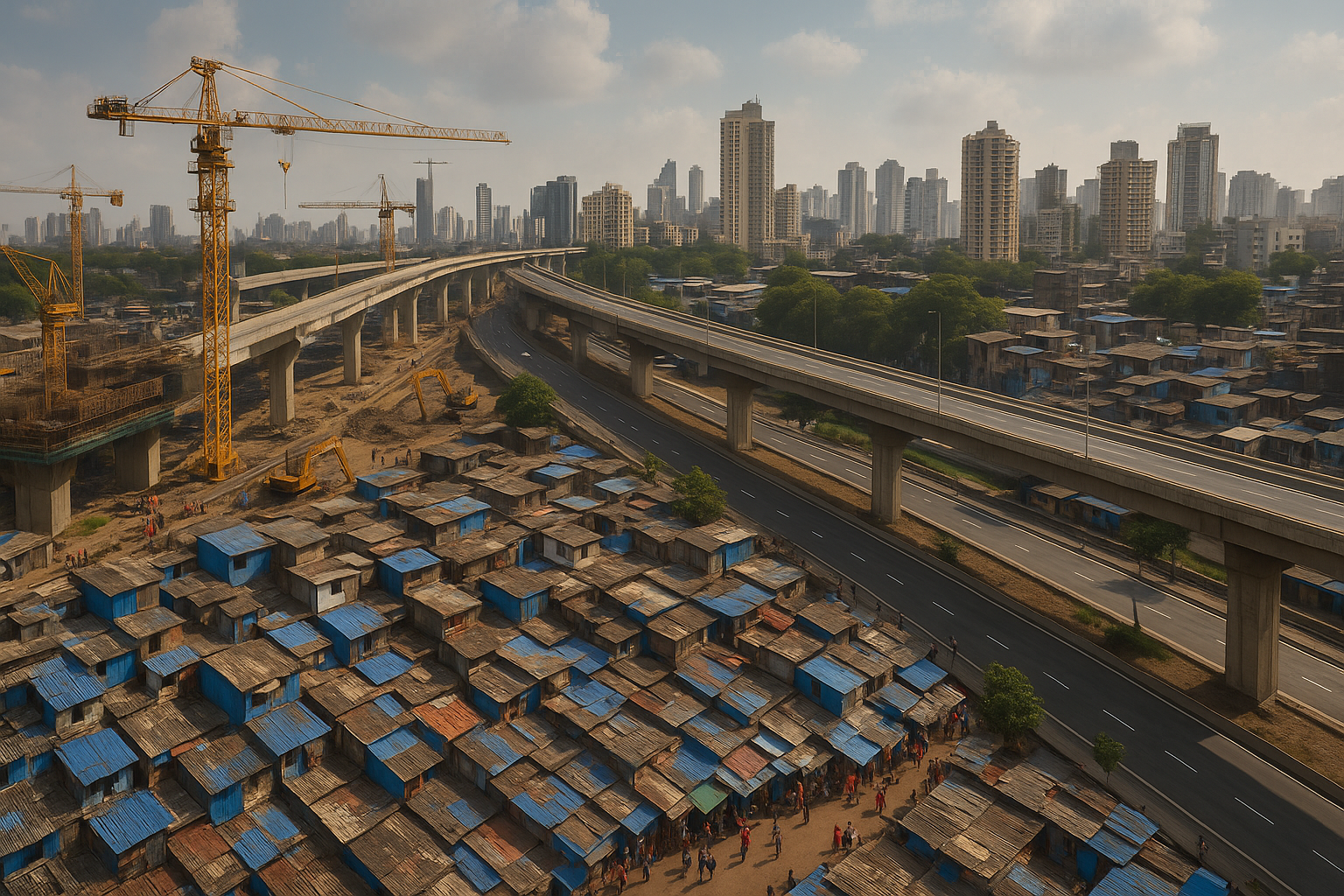India’s Urban Challenge: Bridging Infrastructure Gaps with Smarter Governance
The report, prepared under World Bank initiative P181230 with research support from CEPT University and IIHS, highlights India’s urgent need to modernize urban governance through data-driven planning, citizen participation, and institutional reform. It warns that without systemic change, rapid urbanization will deepen infrastructure gaps and inequalities, but with sustained reforms, cities can become engines of inclusive and resilient growth.

The report prepared under the World Bank’s technical assistance initiative P181230, with substantial research support from CEPT University, the Indian Institute for Human Settlements (IIHS), and other partner think tanks, paints a vivid portrait of Indian cities at a crossroads. It highlights how rapid urbanization is both an opportunity and a burden: while cities are driving national economic growth, they are also where poverty, infrastructure deficits, and environmental stresses are most acute. The study argues that unless governance systems, planning methodologies, and service delivery models are modernized, Indian cities will remain trapped in cycles of inefficiency and exclusion. By combining global best practices with local expertise, the project seeks to create a new template for integrated, citizen-centered urban development.
Urbanization: The Double-Edged Sword
The report sets the context with a frank admission: India’s cities are expanding faster than the systems that manage them. Unplanned growth has led to informal housing clusters, overburdened sanitation systems, traffic congestion, and unreliable water supply. At the same time, these very urban spaces are hubs of innovation, entrepreneurship, and cultural vibrancy. The tension between potential and paralysis is what drives the urgency of this project. A central concern is climate change. With floods, heatwaves, and other shocks becoming more frequent, the report insists that resilience must be built into every sector, from housing to transport. What emerges is the picture of cities as fragile ecosystems, vulnerable to both internal mismanagement and external shocks.
Beyond Plans: Building Institutions and Trust
One of the most striking features of the document is its argument that the true bottleneck is not infrastructure itself but the institutions that govern it. Planning agencies often operate with outdated master plans, poor-quality data, and overlapping responsibilities. The project intervenes by embedding digital platforms, geospatial mapping, and integrated databases into urban management, replacing fragmented approaches with evidence-driven systems. But technology alone is not enough. The report devotes equal attention to participatory governance, ensuring that citizens are not passive recipients but active contributors to planning. Workshops, surveys, and consultations revealed the public’s priorities: affordable housing, reliable transport, and effective waste management, issues often sidelined in official agendas. By placing these voices at the center, the project strengthens both accountability and trust.
Findings: Challenges and Correctives
The research uncovers sobering realities. Urban services are lagging far behind demand, with sanitation coverage patchy and transport systems overwhelmed by congestion. Informal housing continues to expand unchecked, creating health and safety risks. At the same time, planning is hindered by data deficits: agencies often work with outdated maps or contradictory statistics. The project’s establishment of modern GIS systems and shared databases is presented as a corrective, enabling city officials to base decisions on reliable, up-to-date information. Charts and tables in the report provide hard evidence of these gaps, mapping the spread of slums and comparing current deficits in sanitation and housing with the targets set for improvement. Institutional reform also looms large. Weak coordination between municipal departments delays delivery and erodes accountability. Recommendations include creating inter-departmental committees, clarifying responsibilities, and embracing open-data systems so citizens themselves can monitor progress.
Financing, Risks, and Partnerships
Financing urban reform is never easy, and the report acknowledges this upfront. While the World Bank provides technical support, local governments are tasked with co-financing infrastructure upgrades. Partnerships with civil society groups and private developers are strongly encouraged, with public-private partnerships in housing and waste management cited as promising models. Yet risks remain high. Political changes could derail reforms, while limited capacity at the municipal level may delay adoption of new systems. Climate shocks pose additional threats. The mitigation strategies proposed include embedding resilience into every project, training officials to handle new technologies, and building broad political consensus across parties and tiers of government.
A Pathway for Replication
The report stresses that while the challenges are daunting, the groundwork laid in this initiative, particularly in modernizing data systems, building institutional capacity, and embedding community participation, has the potential to be transformative. It calls for the lessons here to be scaled and replicated across other regions, creating a national momentum for sustainable, integrated urban development. The narrative is clear: the future of Indian cities will be determined not just by roads, housing, or water pipelines, but by the strength of the institutions that manage them and the trust they inspire in citizens. If reforms continue, cities can evolve into engines of inclusive growth and resilience; if they stall, the costs in congestion, inequality, and environmental collapse will deepen.
- FIRST PUBLISHED IN:
- Devdiscourse
ALSO READ
World Bank Report Charts $10 Trillion Pathway to Decarbonize East Asia’s Energy
World Bank Pushes Results-Based Climate Finance to Link Carbon Action with Growth
Decline in Mangrove Carbon Stocks Threatens Climate Goals, Says World Bank Report
World Bank Approves $47.9M Education Grant to Boost Schooling in Punjab
World Bank–Egypt Partnership Framework Targets Inclusive Growth and Reform










